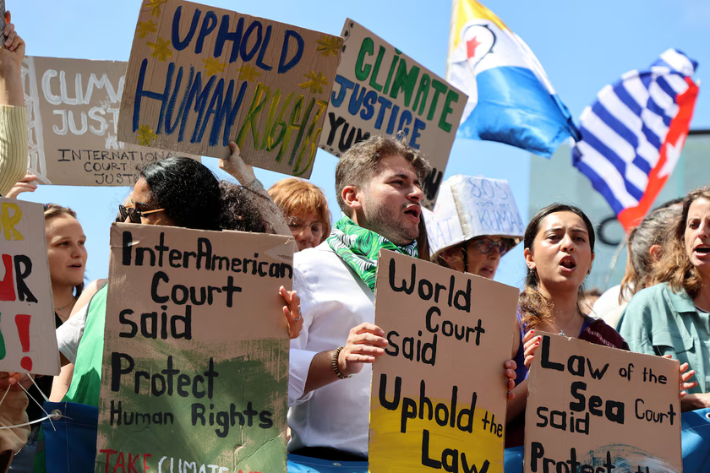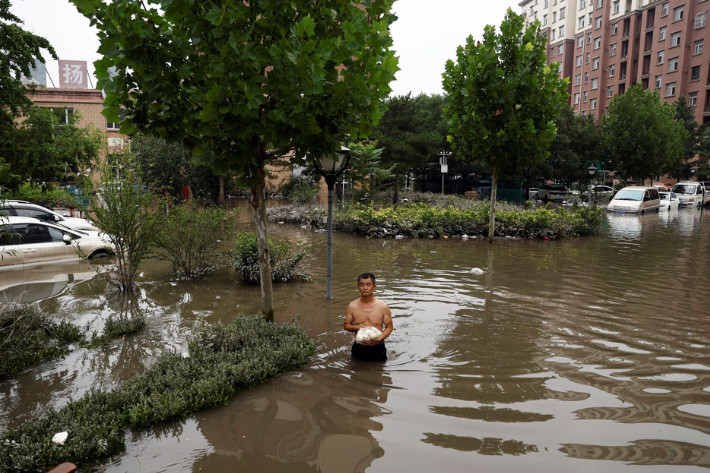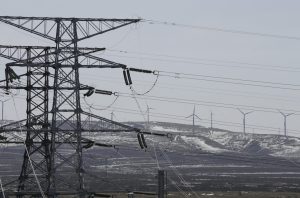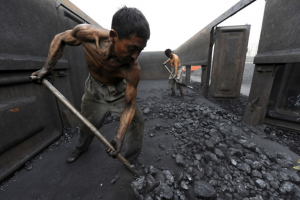A landmark ruling by the United Nations’ highest court saying countries are legally obligated to act on climate change could pave the way for stronger action against nations not doing enough to rein in their emissions, climate activists and experts say.
The International Court of Justice — also known as the World Court — said on Wednesday that countries across the world needed to address the “urgent and existential threat” of climate change.
“States must cooperate to achieve concrete emission reduction targets,” ICJ Judge Yuji Iwasawa said, adding that failure by countries to comply with the “stringent obligations” placed on them by climate treaties was a breach of international law.
Also on AF: Central Banks ‘Unprepared For Climate-Driven Labour Shocks’
The court said that countries were also responsible for the actions of companies under their jurisdiction or control.
Failure to rein in fossil fuel production and subsidies could result in “full reparations to injured states in the form of restitution, compensation and satisfaction provided that the general conditions of the law of state responsibility are met,” it said.
Judge Iwasawa, who presided over the panel of 15 judges, said that national climate plans must be of the highest ambition and collectively maintain standards to meet the aims of the 2015 Paris Agreement that include attempting to keep global warming below 1.5 degrees Celsius.
Under international law, he said: “The human right to a clean, healthy and sustainable environment is essential for the enjoyment of other human rights.”
‘Start of accountability’
While the World Court’s opinion was stronger than most expected, it has triggered speculation on just how enforceable it is, considering the court’s opinion is legally non-binding.

But small island states and environmental groups say it has the power to become a legal stepping stone to make big polluters accountable.
Legal experts say the court’s opinion carries legal and political weight and that future climate cases would be unable to ignore it.
By firmly putting climate obligations under the purview of international law, the ICJ has made clear that “these duties are not merely optional goals or political aspirations: they are grounded in existing treaties, human rights law, and long-standing legal principles,” Delta Merner, the Associate Director for the Climate Accountability Campaign at the Union of Concerned Scientists, said.
“This is an important reframing. Climate inaction is not just a policy failure, it’s a legal breach,” she added.
Meanwhile, Danilo Garrido, legal counsel for Greenpeace, said in a statement that the ruling marks “the start of a new era of climate accountability at a global level.”
Harj Narulla, a British lawyer specialising in climate litigation and counsel for Solomon Islands in the case, said the ICJ laid out the possibility of big emitters being successfully sued.
“These reparations involve restitution — such as rebuilding destroyed infrastructure and restoring ecosystems — and also monetary compensation,” he said.
‘Every loophole rejected’
Wednesday’s 140-page opinion from the ICJ follows two weeks of hearings last December at the ICJ when the judges were asked by the UN General Assembly to consider two questions.
They were: What are countries’ obligations under international law to protect the climate from greenhouse gas emissions? And what are the legal consequences for countries that harm the climate system?
Climate experts say that, by way of its opinion, the World Court has drawn red lines to answer those questions.
The court’s “advisory opinion marks a watershed moment in international climate law, delivering unprecedented legal clarity on States’ obligations,” Washington-based Center for International Environmental Law (CIEL) noted in its debrief of the ruling.
CIEL added that by way of its detailed opinion, the court “rejected every legal loophole” that big polluters could use to evade responsibility. “It reaffirmed a basic truth: the law applies to all, and those who knowingly harm other nations’ territories can and will be held accountable,” it said.
The non-profit further said the World Court’s opinion would also “boost pending climate cases and inspire new ones.”
Separately, CIEL’s senior attorney Erika Lennon noted that the ICJ ruling could also become a tool for countries to “advance ambitious outcomes” at the upcoming UN COP30 conference.
Era of climate reparations foreseen
Solomon Islands’ lawyer Narulla told the New York Times that the ruling would help “climate lawyers around the world” and “strengthen their cases against corporations and government policies.”
In an opinion piece in The Guardian, he also said that for the global fossil fuel industry the ruling could signify “a new era of climate reparations.” “Fossil fuel production, consumption, exploration licences or subsidies… can now be punished under international law,” he noted.
Some of the world’s top economies, including Australia, the United States, China and Saudi Arabia had argued before the ICJ that the extraction of fossil fuels needed to continue – despite global scientists repeatedly noting that no further expansion of fossil fuel sources was necessary, and that such activity needed to be stopped immediately for the world to meet net zero goals.
“The world court’s decision today means that the threat of reparations can now be used to compel action from the worst, most stubborn climate offenders,” Narulla wrote.
Curb pollution – or pay compensation
Vishal Prasad, one of the law students that lobbied the government of Vanuatu in the South Pacific Ocean to bring the case to the ICJ, said: “This advisory opinion is a tool for climate justice. And boy, has the ICJ given us a strong tool to carry on the fight for climate justice.”
A key element of the court’s ruling was that it called on wealthy countries to comply with their international commitments to curb pollution – or risk having to pay compensation to nations hard hit by climate change.
Judge Iwasawa also said these countries had to take the lead in addressing the problem. Historically, rich industrialised countries have been responsible for the most emissions. Meanwhile, developing nations and small island states are at greatest risk from rising sea levels.
Greenpeace’s Garrido said the ICJ opinion will “hopefully bring justice to those, who despite having contributed the least to climate change, are already suffering its most severe consequences.”
Meanwhile, Oxfam’s climate change policy lead Nafkote Dabi said in a statement that rich countries will now have to “increase their financing to Global South countries to help them reduce emissions and protect their people from past and future harm”, as it is “international law”.
The impact of the ICJ ruling may, however, be limited by the fact that the United States, the world’s biggest historical greenhouse gas emitter, and second biggest current emitter behind China, has moved under President Donald Trump to undo all climate regulations.
Still, Robert Percival, director of the environmental law program at the University of Maryland’s law school, told the New York Times that the court’s opinion will carry weight.
“It is the one body that’s the most authoritative in declaring what international law is or should be,” he said. “I think people will pay a lot of attention.”
- Vishakha Saxena with Reuters
Also read:
Climate Chaos ‘Could Disrupt Half of Global Chipmaking by 2050’
Continued Fossil Fuel Investments Put $557 Trillion ‘At Risk’
China’s Losses From Floods, Disasters in First Half: $7.6 Billion
Bridge to Nepal Washed Away as Flash Floods Rock China
Floods Swamp Cities in Southwest China, And More Storms Due
Firms Underestimating Risks From Carbon-Fuelled Climate Change
Carbon Removals Not Growing Fast Enough For Climate Goals
Climate Change Cost China $32 Billion in Just One Quarter
Not a Single Asian Country Met Air Quality Standards in 2024
India Renewable Power Output Jumps, Coal Use Falls in First Half
China’s One Trillion Watt Solar Journey
The Cost of India’s Crop Waste Burning
























